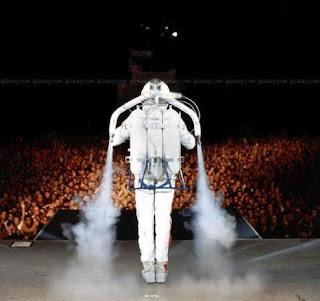
Bowling Alone
The Collapse and Revival of the American Community
Robert D Putnam
Simon & Schuster 2000
* * * * * 5 Ninja Stars
I came across this fascinating piece of work at The Warehouse book sale remainder clearance bin for the remarkable low price of NZ$ 1.97. Which is cheap even for a notorious cheap bastard such as myself.
It was some where between "The Back Street Boys Annual 2000" and the "Batman Returns" colouring in book.
Don’t let the discounting of this particular copy dissuade you how ever, it was the only copy there and it was most probably the last of a much larger batch.
"The collapse of the American Community" was the phrase that grabbed me because I am always interested to here about the when were and how of the U.S.A going the way of Carthage and the Dodo.
But this is no latter day lamentations of Jeremiah preaching the fall of the Second Roman Empire or Babylon on the Potomac.
Robert Putnam is a serious and dedicated sociologist plotting the curves of the graph of American civil society, and for at least the last 30 years the graphs have been curving down.
"Social Capital" is the key term throughout and the title phrase "Bowling alone" is its key metaphor.
Social Capital is the idea that all social networks have value, not just a vague metaphysical value but real tangible value, people with better social links are happier and live longer wealthier and more productive lives.
As for the bowling part of it, more Americans are actually bowling but fewer and fewer are doing it together in clubs and leagues.
All across the country participation in all manner of clubs, groups and voluntary organizations is falling. Generally speaking the curve goes something like this, from modest beginnings at say 1900 memberships rise slowly but steadily, there is a dip during the great depression, and then another drop during the war years. After that there is a major rise in participation till about the late 60’s early 70’s when things plateau. Then the rot sets in the early 80’s and its been down hill ever since. Its not just the formal clubs and associations like the Masons, Rotary or the boy Scouts either. The decline is general, less people getting together for dinner parties and card games less people chatting with the neighbors even less people bothering to stop at red lights.
As a balance to these falling numbers we have a rising curve of lawyers, police officers and security guards. As the general level of trust within a community falls professionals are recruited to fill in the gaps that used to be taken care of, to a greater or lesser extent by the community. As each member of the community feels that they are surrounded more and more by thieves and cheats the less likely they are to trust and work for the common good themselves, a vicious cycle is created were everyone will try to get theirs’ first.
It’s a classic of the social dynamic, the prisoners dilemma, the tragedy of the commons, if we all wait in line we will all get served, eventually but those who jump the queue get served first, enough people try to cut in line then the whole system collapses.
There are many objection that serious minded academics raise to these sorts of statements, representative sample sizes, correcting for race, age education. All these objections and many more are raised and explained.
Putnam’s research is voluminous and persuasive his references are meticulous and massive.
The only real area where this work falls down is the second half of the title the, Revival part of the "Collapse and Revival of the American Community "
It’s certainly not half of the work, the details of the collapse take up 22 chapters while the revival gets only 2. Its not event direct evidence of a revival it’s more like a few little pieces that might be promising signs of a revival. I guess that Dr. Putnam is just trying to be optimistic. He’s a loyal American and I respect that but here his loyalty overwhelms the hard nosed investigation that is so strong in the rest of the book.
What he is giving us is the hope or possibility of a revival not any direct evidence that it is happening.
Its important to remember that this is from 2000 before the epoch making 9-11 so things have moved on a lot. But to what end ?
The big hope of Dr. Putnam is the Saguaro Seminar a brain trust of prominent persons trying to come up with ways rebuild America’s failing stocks of social capital.
The second stage of Dr. Putnams’ project is now available on line
"Better Together" which your friendly Spaceman has downloaded as is working his way through and will report back on just as soon as he can be bothered.


No comments:
Post a Comment